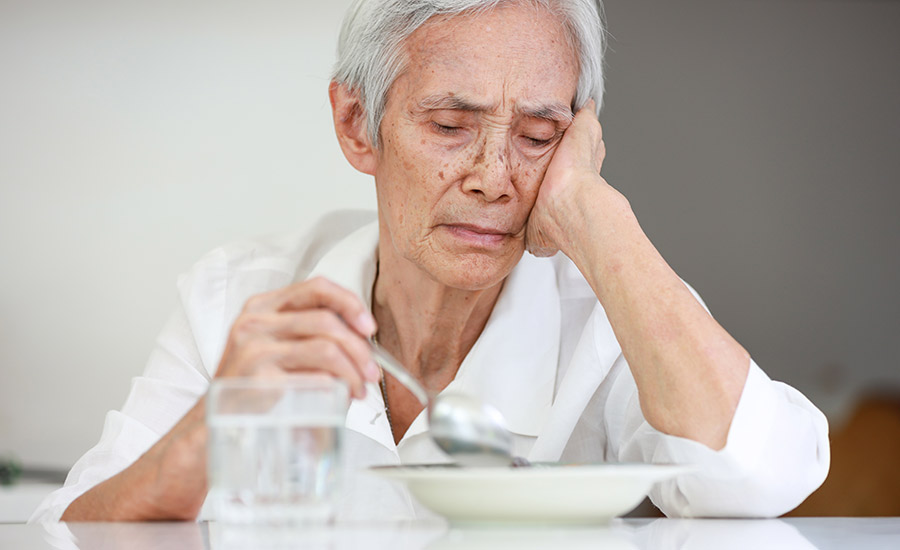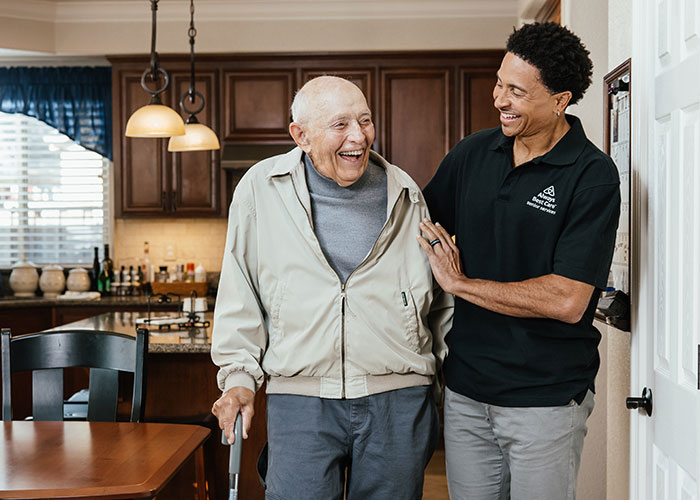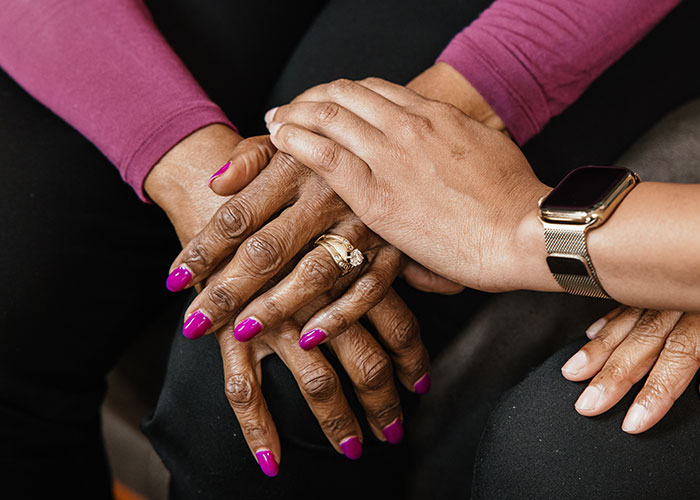Why Do Old People Sleep So Much? [+ Tips To Improve Sleep]
![Why Do Old People Sleep So Much? [+ Tips To Improve Sleep]](https://cdn.alwaysbestcare.com/wp-content/uploads/2024/06/why-do-old-people-sleep-so-much-hero-image.jpg)
Did you know that 23% of older adults, around 84 years old, experience excessive sleepiness during daytime?
This often results from different factors, such as dementia, that disrupt normal sleep patterns in the evening.
While quality sleep greatly impacts an elderly person’s health and daily functioning, it’s also important to enjoy life and engage in activities that bring happiness and fulfillment.
In this article, we’ll share the answers to “Why do old people sleep so much?”, cover tips on how to help your loved one feel rested at night, and explain how our services at Always Best Care can help.
Table of Contents
Why Do Old People Sleep So Much?
Elderly individuals often sleep so much due to changes in sleep patterns, different health conditions, and decreased activity levels as they age.
Shifting Sleep Schedule
Whether it’s because of daylight saving or jetlag, our bodies handle changes in sleep schedules differently as we age.
This shift is primarily due to changes in the body’s internal clock, also known as circadian rhythm, which regulates cycles of sleepiness and alertness.
Daytime Napping
As a natural process of aging, older adults are more likely to take naps during the day.
While napping can compensate for shorter nighttime sleep, excessive napping can interfere with nighttime sleep quality and duration.
Depression
Sleep disturbances are usually associated with depression, which can affect individuals at any age.
However, depression is more prevalent in elderly individuals, as it is often prompted by social isolation, aging, and the loss of spouses and friends.
Depression can lead to either insomnia or hypersomnia, also known as excessive sleepiness.
Boredom
Limited options for travel, hobbies, and entertainment can significantly impact a senior’s quality of life.
Many elderly individuals are retired, lose interest in watching TV, and may find reading the newspaper or solving jigsaw puzzles challenging.
This lack of engagement isn’t necessarily a sign of clinical depression or extreme fatigue — often, it’s just boredom.
Without activities or a daily routine to look forward to, many seniors may fall into the habit of napping throughout the day.
Health Problems
Health issues that become more common with age, such as arthritis, neurological disorders, diabetes, and heart disease can disrupt sleep.
Pain and discomfort from these conditions can make it difficult to fall asleep or stay asleep.
For example, when doctors diagnose an elderly individual with arthritis, the pain and stiffness associated with the condition can make finding a comfortable sleeping position challenging.
This often leads to difficulty falling asleep, further disrupting sleep patterns.
Surgery
Recovery from surgery can significantly impact sleep patterns in elderly individuals, as post-operative pain or discomfort often leads to sleep disturbances.
In addition, hospital stays related to surgical procedures can disrupt the normal sleep-wake cycle due to environmental factors such as noise, light, and frequent nursing interventions.
Dementia
Elderly patients with dementia from Lewy body disease, such as Parkinson’s disease, may feel sleepy during the day but experience restless nights.
In addition, patients who are diagnosed with late-stage dementia sleep most of the day due to the extensive brain changes that occur as the disease progresses.

How Do I Know if My Elderly Loved One Is Sleeping too Much?
Elderly individuals typically need about seven to nine hours of sleep each night. However, since their sleep is often interrupted by issues, such as bladder control, aiming for closer to nine hours is advisable.
If your elderly loved one is getting around eight hours of sleep at night but still naps frequently during the day, it’s a good idea to check if there might be underlying health problems causing excessive sleepiness.
Tips to Help Your Loved One Get a Good Night’s Sleep
To help your elderly loved one stay awake during the day and sleep better at night, consider these tips:
- Set a regular routine for your elderly loved one to help regulate their body’s internal clock, making it easier for them to fall asleep and wake up feeling refreshed.
- Encourage your elderly loved one to spend time outside during the day to help improve their sleep. Make sure they get some sunlight in the morning, take a walk in the afternoon, and avoid blue light from screens at least three hours before bed.
- Create a cozy sleeping environment for your loved one by ensuring their room is quiet, kept cool — ideally between 65-70 °F, and with dim lights. Invest in a comfortable bed and consider using blackout curtains to keep the room dark and conducive to sleep.
- Allow short naps of about 20-90 minutes in the afternoon, as this can interfere with nighttime sleep.
- Encourage your elderly loved one to exercise regularly to improve sleep quality. From walking and gentle yoga to swimming or Tai Chi, these exercises can help naturally tire them out by bedtime.
- Reduce mental stress. Stress and anxiety accumulated throughout the day can make it difficult to relax at bedtime. To combat this, help your elderly loved one establish a calming pre-sleep routine. This might involve activities such as meditation, deep breathing exercises, or gentle yoga stretches.
- Monitor your loved one’s diet and fluid intake. For example, avoid large meals, fluid intake and caffeine close to bedtime to help reduce nighttime trips to the bathroom.
- Satisfy your loved one’s hunger before bed. Eating a light snack before bed can prevent hunger pangs from disturbing your loved one’s sleep. Opt for snacks that are easy on the stomach and low in sugar to avoid spikes in blood sugar levels. Some good options include a glass of warm milk or a small bowl of low-sugar cereal with milk.
- Establish a relaxing pre-sleep routine to help your loved one wind down. This can include activities, such as reading, gentle stretching, or listening to soft music.
- Review medications with your elderly loved one’s healthcare provider to ensure they are not interfering with sleep. Some medications, such as diuretics or “water pills”, can have stimulating effects or increase the need to use the bathroom during the night.
- Consult your elderly loved one’s healthcare provider. If sleep problems persist, it’s best to consult a healthcare provider. They can check for sleep disorders or other health issues that might be interfering with sleep. They can also review medications that might be impacting sleep and adjust dosages or timing if necessary.

Find Senior Care Services to Help Your Loved One Manage Their Sleep
As your loved one ages, you might notice they’re sleeping more.
Whether they don’t have as many things to keep them busy or they just don’t have the energy they’re used to, sleeping more often becomes part of their routine.
At Always Best Care, our compassionate and skilled team is committed to supporting you and your loved one through the challenges of the natural aging process.
With 225 territories across the United States and Canada, we offer superior care for the best patient experience.
Our services include:
- in-home care: Our team offers continuous home care, including meal preparation, medication reminders, companionship, and personal hygiene assistance.
- Skilled home health care services: In available locations, we provide specialized care for chronic conditions, customizing plans to meet your loved one’s specific needs.
- Specialized home care services: We use advanced tools, such as remote patient monitoring, balance tracking systems, and personal emergency response systems, to consistently support your loved one’s health.
- Respite care services: Whether you need a caregiver for the day or for an extended period, we can help. Allow us to care for your loved one while you look out for yourself or manage other responsibilities.
- Dementia care services: We provide sensible and compassionate care for individuals with dementia, focusing on their safety, comfort, and overall well-being.
- Senior living referral services: Looking for the ideal senior living option for your loved one? We’re here to help. We’ll find you the best communities that fit your loved one’s needs, budget, and preferred location.
- Veterans assistance program: We help veterans obtain financial aid for their medical needs as a token of gratitude for their service.
FAQs About Aging and Sleep
Want to know more about aging and sleep? Find answers to the most common questions below.
How many hours of sleep do elderly need?
Elderly individuals typically need about seven to nine hours of sleep per night, like adults in younger groups.
However, sleep patterns may change with age, often leading to earlier bedtimes and wake times.
Is it okay for my elderly loved one to sleep all day?
If your loved one seems comfortable and isn’t showing signs of distress, extra sleep during the day usually isn’t a cause for concern.
However, if they are spending most of their time in bed, it’s important to monitor them to prevent any physical health issues that can arise from prolonged lying down.
Do elderly people sleep more at the end-of-life?
Towards the end-of-life, many elderly people may sleep more due to a combination of reduced physical activity, overall health decline, and changes in their biological clocks.
Why do elderly people fall asleep while sitting?
Elderly individuals often fall asleep while sitting due to several factors including fatigue, medication side effects, or the natural decline in the body’s circadian rhythms.
Poor nighttime sleep quality can also contribute to increased daytime sleepiness.





